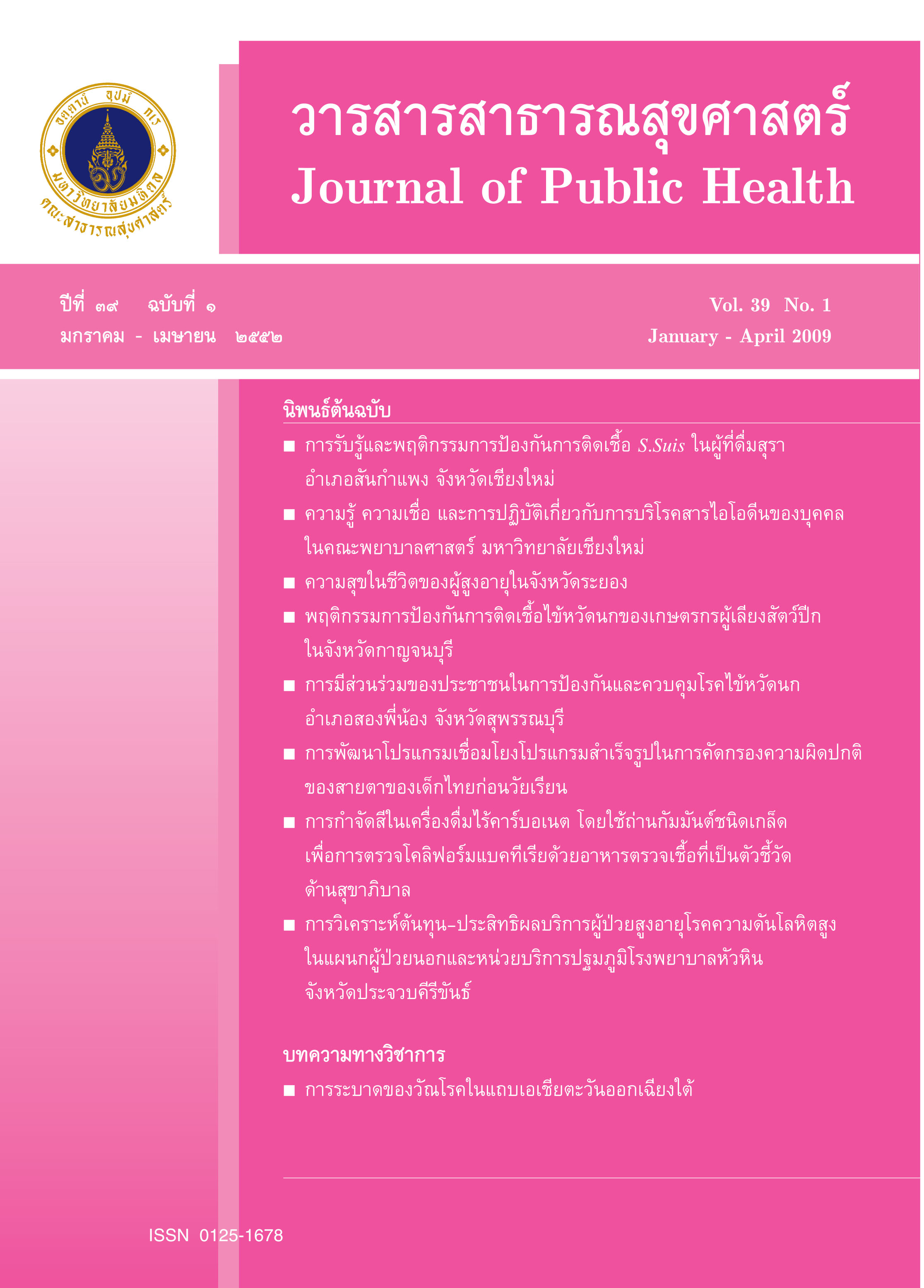Health Promotion Program by Buddhism Approach to Minimizing Food Borne Diseases in Household
Keywords:
Health promotion program, buddhism doctrine, foodborne diseases, โปรแกรมส่งเสริมสุขภาพ, หลักวิถีพุทธ, โรคจากอาหารเป็นสื่อAbstract
ABSTRACT
This Quasi-experimental research design was implemented to examine the effectiveness of health promotion program according to Buddhism doctrine using pre-test and post-test questionnaires. Buddhism doctrine approach is a right understanding process (Samma-dithi), which focuses on wisdom realized by hearing or reading (Suta-maya-pannas), (2) wisdom realized by thinking, reflection or contemplation (Cinta-maya-panna) and (3) wisdom realized by practice or experience (Bhavanamaya- panna). Yanyaw sub district, Sawankalok district in Sukhothai province was purposively selected based on high prevalence rate of food borne disease, readiness and willingness to participate of researchers. 60 housewives were chosen to be the samples of study. The analysis statistic was pair T-test. Results showed that after implement, the housewives group had significant higher scores (p < 0.001) of knowledge, and practice than that prior to participate the program.
Since the foodborne diseases reducing according to Buddhism doctrine program was effective, the program should be adopted to solve foodborne disease problems in other communities. Furthermore the program should be reproduced by the involved the subjects as the trainers to educate other housewives in their own community.
Key words: Health promotion program, buddhism doctrine, foodborne diseases
Downloads
Issue
Section
License
Creative Commons License CC-BY-ND


